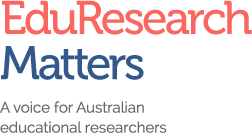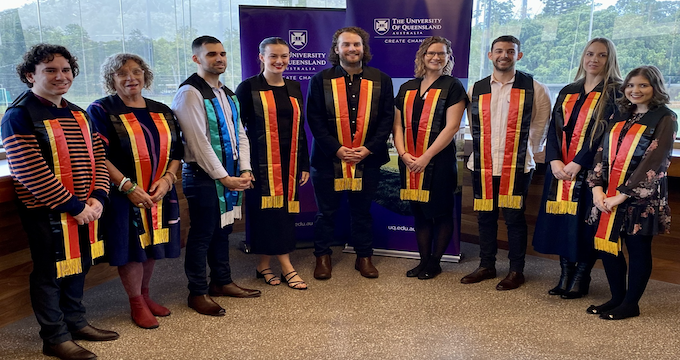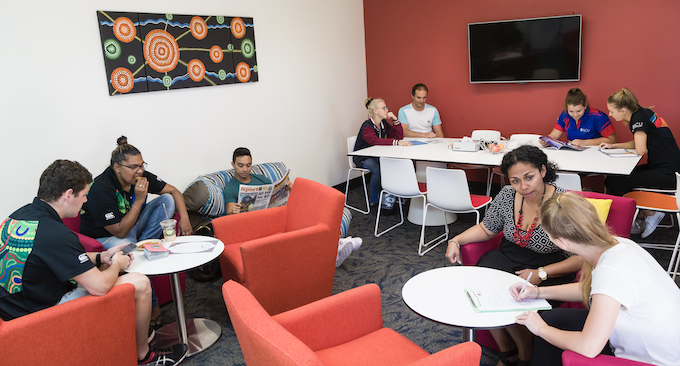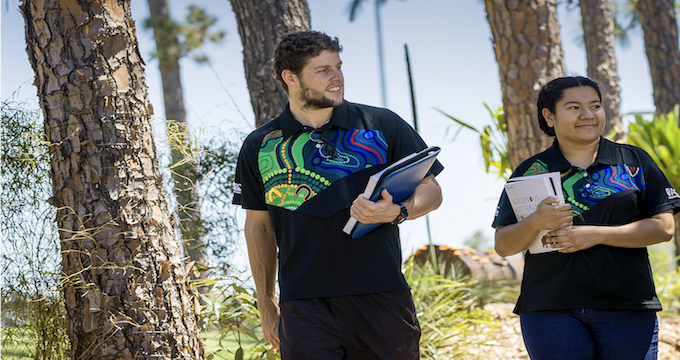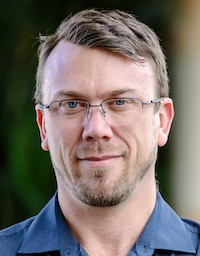The recent federal election victory of the Albanese Labor government, which secured a larger majority in parliament, presents a unique opportunity to implement meaningful reforms in Australian higher education.
With this victory comes the responsibility to address longstanding issues in the tertiary education sector. It has long been treated as “a political punching bag”, says Associate Professor Milad Haghani of the University of Melbourne. Universities were particularly vulnerable during political debates about housing shortages, congestion, and migration associated with international students.
What was missing from these debates? The broader social, cultural, and long-term diplomatic contributions that international students make to Australian campuses and communities economically.
The current higher education landscape in Australia faces significant challenges regarding student completion rates. Social determinants play a vital role in determining who successfully completes university degrees. Recent research examining 2,528 Australian graduates who finished their degrees between 2018 and 2022 reveals various interconnected factors influence university completion, extending beyond assumptions that financial barriers are the primary obstacles to student success.
Higher Education Success Factor Framework: Evidence-Based Reform for Australian Universities
Our new research, published in Frontiers in Education, introduces the Higher Education Success Factor (HESF) framework. This is a validated tool that identifies and addresses the social determinants impacting Australian university students’ completion rates. We claim this study could provide timely and useful evidence to guide the implementation of the Federal Government’s Universities Accord reforms.
The HESF framework addresses a fundamental research question. “What are the main multidimensional factors influencing Australian students’ completion of a university degree?”
Confirming the data responses from over 2,200 Australian graduates, the research has validated both the 5-factor and 4-factor models measuring the social determinants of higher education success. These models examine five key areas: social environment (institutional support and inclusive policies), physical environment (facilities, housing, and safety), economic conditions (financial stability), health and wellbeing (mental and physical health), and individual characteristics (motivation and resilience).
The research reveals that health and well-being emerge as the most significant factors influencing completion rates, followed by individual characteristics and economic conditions. For Indigenous students specifically, economic challenges were identified as a critical barrier, but the research demonstrates that targeted support must address both financial and non-financial factors to be effective.
An opportunity now exists to fix the longstanding challenges in Australia’s Higher Education sector using evidence from the Higher Education Success Factor (HESF) framework as the Government implements the Universities Accord reforms, which aim to increase tertiary attainment to 80% of the workforce by 2050.
Key Findings from the HESF framework
- The research validated a streamlined 4-factor model that reduces redundancy while maintaining strong predictive power. The critical factors include:
- Social environment (institutional support, inclusive policies)
- Physical environment (facilities, housing, safety)
- Health and economic wellbeing (financial stability, mental/physical health)
- Individual characteristics (motivation, resilience)
- Based on surveys of 2,528 Australian graduates (2018-2022), the research identified health and wellbeing as the most significant factor influencing completion rates, followed by individual characteristics and economic conditions.
- Among university graduates, Indigenous students’ economic challenges were identified as a critical barrier, underscoring the need for targeted support that addresses both financial and non-financial factors.
Alignment with the Universities Accord Implementation
The HESF framework directly supports the implementation of key elements in the Australian Universities Accord, which Minister Clare describes as “the biggest and broadest review of the higher education sector in 15 years.” These key elements are addressed below.
Supporting Needs-based Funding
The HESF research provides solid evidence for the Accord’s Needs-based Funding system, which will be implemented from January 2026. This funding model ensures “students from underrepresented backgrounds get the academic and wrap-around supports they need to succeed at university.” The Government has committed to demand-driven Needs-based Funding, meaning “funding for wrap-around supports will grow with each additional student, instead of having to stretch existing supports and services across more students.”
In its first year, the program will support approximately 140,000 students from low SES backgrounds and First Nations students, with regional contributions benefiting an estimated 150,000 students at regional campuses.
Informing the Australian Tertiary Education Commission’s (ATEC) Work
We believe that the research could also guide the work of the new ATEC which was established with $54 million in funding to “advise on and implement tertiary education reform, drive growth through equity and ensure our national skills needs are met.”
The HESF framework can inform ATEC’s approach to:
- Determining allocations for the Managed Growth Funding system
- Implementing Needs-based Funding as part of the core funding model
- Negotiating enhanced mission-based compacts with providers
Enhanced Support for Students with Disabilities
Our research highlights the importance of non-financial factors such as social environment, physical environment, health, and economic well-being. The Government will quadruple the Higher Education Disability Support Fund, increasing funding by approximately $40 million annually. This boost will “help universities deliver more programs and services that empower students with disabilities to access, participate in, and succeed in higher education.”
Our recommendations for Implementation
The HESF research suggests universities should:
- Use the HESF model to audit existing support systems, identifying gaps in health services, mentorship, and infrastructure;
- Integrate health and wellbeing support into strategic planning as a top priority, particularly for marginalised groups;
- Create supportive environments that address academic, social, and emotional needs; and,
- Targeted support for Indigenous students with both financial and cultural/social assistance.
Policy makers: The evidence from our large scale research conducted with 2,528 Australian graduates who graduated between 2018-2022 should not be overlooked. Instead policymakers could:
- Ensure the ATEC incorporates the HESF framework in its Managed Growth Funding system oversight.
- Balance financial initiatives (like the 20% HECS debt reduction) with structural support addressing non-financial barriers.
- Measure success by enrolment numbers and completion rates across demographic groups.
- Direct additional resources to regional campuses to address their unique challenges
Economic and Social Impact
The benefits are substantial for individuals—a median annual income increase of $30,000 for those with a bachelor’s degree compared to Year 12 completion.
Beyond individual benefits, the Department of Social Services estimates that “increasing educational attainment from year 12 to a higher education qualification lowers projected lifetime social security costs by an average of $12,000 (2021-22 dollars)” per person.
A pivotal contribution
The HESF framework could be used as a pivotal contribution to evidence-based higher education policy in Australia at a critical reform moment. As the Government implements the Universities Accord, this research provides the answers to student success as measured by completion rates.
The timing of this research aligns perfectly with Prime Minister Albanese’s commitment to higher education reform and the 20% student debt reduction. Together, these initiatives create a comprehensive approach to improving completion rates and addressing barriers that underrepresented students face.
By incorporating the HESF framework into policy implementation, Australia has the opportunity to transform equity goals into measurable actions and ensure its ambitious 80% tertiary attainment target becomes a reality. This will prepare more Australians for the jobs of the future while strengthening the nation’s position in the global knowledge economy.
Bios, from left to right

Thu Pham is a researcher at the Indigenous Research Unit, Griffith University. Her work focuses on Indigenous higher education and supporting Indigenous HDR student projects. Her research explores how university leadership can enhance Indigenous student success by improving student experiences and outcomes. She is on LinkedIn.
Angela Baeza Pena is a lecturer at Queensland University of Technology. She is Diaguita First Nation from Chile. Her PhD focuses on understanding the experiences of teachers and Indigenous community members in providing Indigenous education in rural and remote areas. Her research area includes Indigenous education, teacher professional development and higher education with Indigenous peoples. She is on LinkedIn.
Peter Anderson hails from the Walpiri and Murinpatha peoples of the Northern Territory and is the incoming Pro Vice Chancellor (Indigenous) at the University of New England. His research encompasses Australian Indigenous education, educational systems, curriculum, and pedagogical interventions, alongside the intersecting relationships with Indigenous peoples both globally and domestically. He is on LinkedIn.
Levon Blue is an associate professor at The University of Queensland in the Office of the Deputy-Vice-Chancellor Indigenous Engagement. Her PhD focused on financial literacy education practices in a First Nation community in Canada. She is a member of Beausoleil First Nation in Canada. Her research area includes financial literacy education and higher education with Indigenous peoples. She is on LinkedIn.

